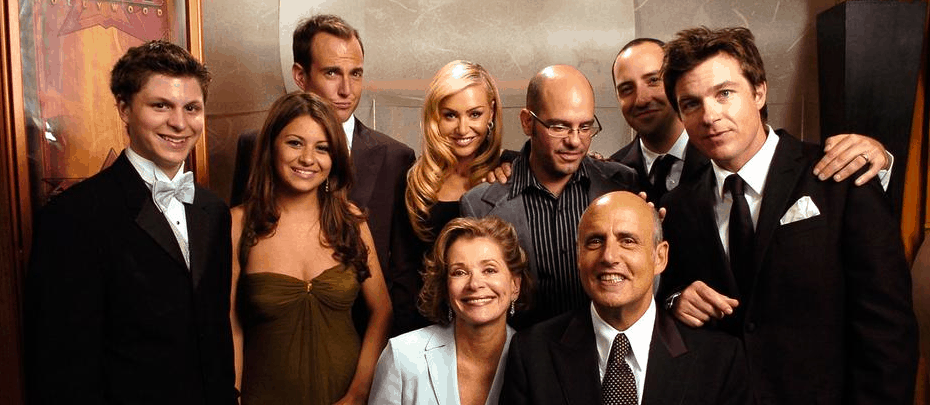If you had asked me a few weeks ago about my father, I likely would have given you a kind, but curt reply intended to suggest no further inquiry was necessary. If the message didn’t register, and you continued to prod, I would tell you he was an immature man who wasn’t a big part of my life.
The questions usually stopped there.
But when I was asked last week to speak about my father, those answers were unfit for the occasion: his funeral.
After some thought about what I could say that would be both honest and honoring of my father, I zeroed in on his “big heart and great capacity for love.” I said in my eulogy, “I wanted some things from my father that he wasn’t able to give, but he gave me the one thing that every son needs from his father: to know that he is loved.”
As I was forced to think and write primarily about the good things—about my father’s love—I was nagged by a creeping thought: “shouldn’t that have been enough?” Jesus taught us to love our enemies; I struggled to love my own father.
We spend a lot of time trying to make concrete the idea of loving the stranger in our midst, as we should. But in some ways, and for some people, I wonder if loving the stranger is the easier part.
For instance, I am amazed by the mother who forgives the anonymous man who shot her son. But I am confounded by the mother who forgives the father who couldn’t prevent the shooting.
There is an unspoken and expected obligation we place on our loved ones, reasonable or not, that the stranger simply does not have to live up to in our lives. The brokenness of the stranger comes at no clear, direct cost to us. The brokenness closest to us, in our family, feels like a betrayal. A personal affront.
In some areas of Christian culture, our vision of loving the stranger is expanding while our vision of loving those closest to us is restricting. Christian “thought pieces” are written now how emotionally draining someone has to be in order to justify dissolving your friendship with them, or the point at which simply loving someone with an addiction is promoting their behavior.
Up until his passing, I believed I was “honoring my father” by not telling him what I thought of him. My rationale for not calling him every week was that distance was important in order to keep a destructive person out of my life. I had to “guard my heart,” aware that if I let him back into my life one day, it could allow him to bring it down the next.
But in the stagnant days following his death, I have been left with a searing question: what if I had relied more on Jesus? What if, instead of putting in place relational roadblocks, I had depended on God to help me truly love my father each day, and let Him worry about what comes next?
Of course, there are circumstances where this may not apply. If a family member is physically abusive toward you, or if there are other extreme circumstances at play, separation may be the best, most appropriate choice. And as I sorted through the rubble in my heart left by his passing, I was reminded by a friend that had I invested in a relationship with my father—given all of his baggage and faults—I likely would have had little capacity to invest in my vocation or in the beginnings of my relationship with the girl who would become my wife. All deep relationships are complex, and the context of each is different. We need grace in our lives—for ourselves and for others. I write this not as a guilt trip or out of a spirit of coercion; but out of confession and reflection.
On the Sunday of my father’s funeral, my pastor preached on 1 Corinthians 13. “Love is patient,” he told us, means that love is “long-fused.” A long-fused love does not come from obligation, but from the humility and abundance that comes from knowing that God loved us first. He loves us in our brokenness. While we were still sinners, God’s love sent His Son to the cross. That is the love we have available to us.
I believe how I related to my father was probably justified. Perhaps even within the boundaries of biblical wisdom. But in these intense days of reflection—days where I have been admittedly shaken by this sudden change in circumstance—I can’t help but wonder what could have happened if I had focused less on what was justified by my father’s brokenness, but instead on the love and example of my Heavenly Father.
I ask you this in a spirit of humility and friendship: Is there anyone close to you who you’ve decided would cost too much to love? Does God have the power to help you love that person, and if so, would you ask him for it?
Later in his letter to Corinth, Paul writes this: “Love never fails … For we know in part and we prophesy in part, but when completeness comes, what is in part disappears. When I was a child, I talked like a child, I thought like a child, I reasoned like a child. When I became a man, I put the ways of childhood behind me. For now we see only a reflection as in a mirror; then we shall see face to face. Now I know in part; then I shall know fully, even as I am fully known.”
Heaven changes things. Jesus changes everything. People are difficult, and relationships can be trying. But I am just beginning to learn that Jesus came and heaven surrounds us not just so we no longer have to fear evil, but so that we can also love without fear.





















